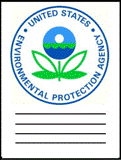United States Environmental Protection Agency

United States Environmental Protection Agency: Publications
Document Type
Article
Date of this Version
2011
Citation
Published in Chem. Eng. Technol. (2011) 34:12, 1989–1996. DOI: 10.1002/ceat.201100353
Abstract
Sugarcane bagasse was partially acetylated to enhance its oil-wicking ability in saturated environments while holding moisture for hydrocarbon biodegradation. The water sorption capacity of raw bagasse was reduced fourfold after treatment, which indicated considerably increased hydrophobicity but not a limited capability to hold moisture for hydrocarbon biodegradation. Characterization results by Fourier transform infrared (FT-IR), scanning electron microscopy (SEM), X-ray diffraction (XRD), and surface area analyzer suggested that treated bagasse exhibited enhanced hydrophobicity and surface area. Oil wicking test results indicate that treated bagasse is more effective in wicking oil from highly saturated environments than raw bagasse and suggest that application of this material in remediation of oil spills in highly saturated wetlands is promising.
Included in
Earth Sciences Commons, Environmental Health and Protection Commons, Environmental Monitoring Commons, Other Environmental Sciences Commons

